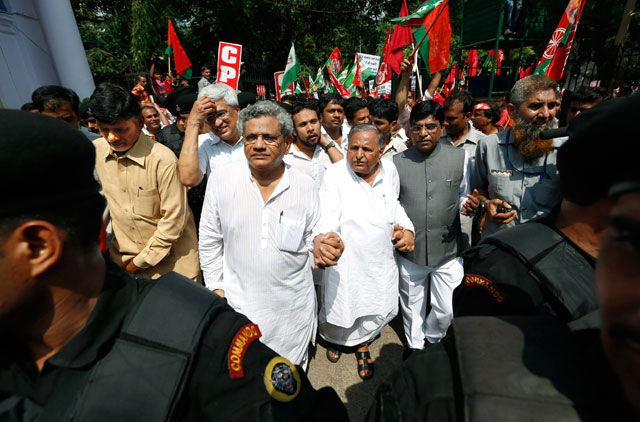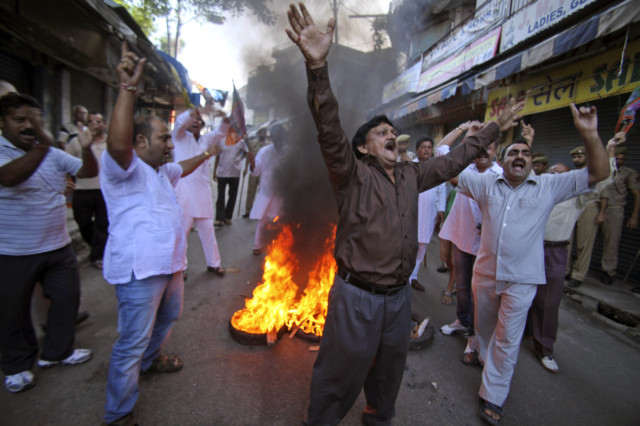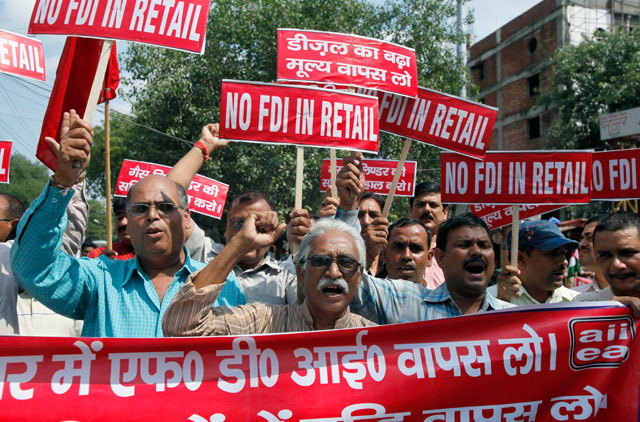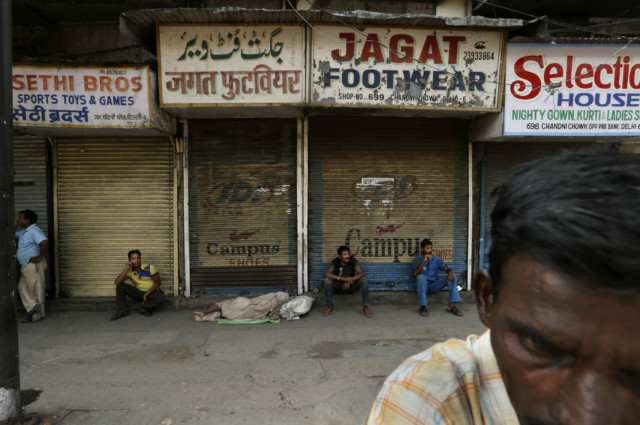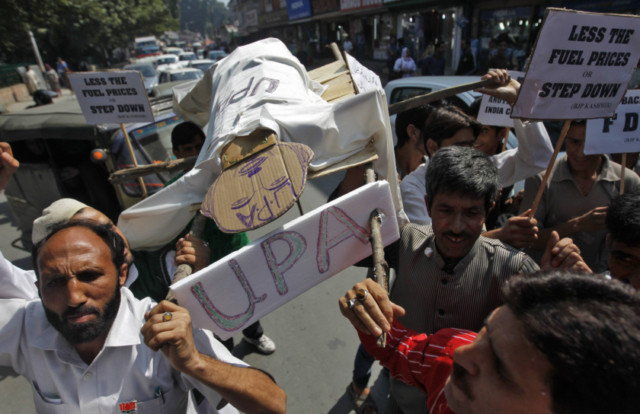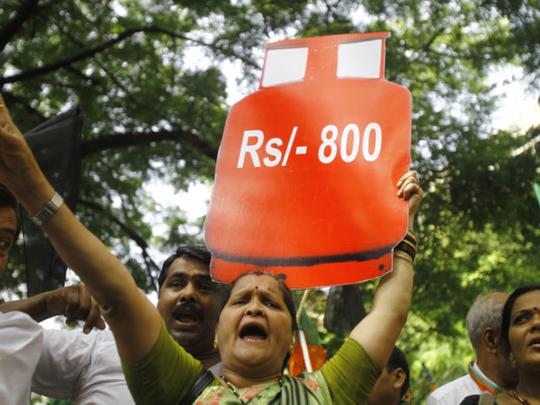
New Delhi: An opposition-called shutdown against economic reforms hit normal life in many states but the government said it was firm on pushing ahead with steps to revive a sagging economy.
The general strike crippled normal life in Uttar Pradesh, Bihar, West Bengal, Odisha, Karnataka, Jharkhand, Madhya Pradesh, Chhattisgarh, Assam and Tripura.
Shops and businesses in these states were universally shut. Rail and road transport was also badly hit, inconveniencing millions.
Thursday’s protest was sponsored by the Samajwadi Party, the Left and the Bharatiya Janata Party (BJP) and its allies barring the Shiv Sena.
In Tamil Nadu, even Congress ally DMK joined the show.
Elsewhere in India, including Delhi, life was near normal although Left as well as NDA activists organised noisy rallies in all major cities.
The Confederation of Indian Industry (CII) estimated that the Indian economy lost Rs125 billion (Dh8.2 billion) on Thursday because of pan-India work stoppage.
Opposition leaders vowed to keep the protests going against the hike in diesel prices, FDI in multi-brand retail and ceiling on subsidized cooking gas cylinders — measures the government announced last week.
The Confederation of All India Traders (CAIT) said the strike was “very successful” and said an estimated 50 million shopkeepers across India took part.
“All our 25,000 trade associations called the strike and all traders participated,” the group’s national secretary general, Praveen Khandelwal, told IANS.
In the heart of the capital, leaders of traders’ bodies joined hands with political veterans to denounce the FDI in retail trade which they say will ruin India’s mammoth retail sector.
“This is only the beginning. Our struggle will continue till the decision is reversed,” said BJP president Nitin Gadkari.
Samajwadi Party chief Mulayam Singh Yadav courted arrest in Delhi along with Left leaders A.B. Bardhan, Prakash Karat and Sitaram Yechury, and TDP chief N. Chandrababu Naidu.
In Bangalore, BJP’s former chief minister B.S. Yeddyurappa too courted arrest.
The government said it would not back off on its economic measures.
Law Minister Salman Khurshid said: “We have done the reforms with a humane face. This is an ‘aam aadmi’ [common man] reform.”
Khurshid denied the government could topple because of the exit of the Trinamool Congress, which has 19 MPs in the 545-seat Lok Sabha and is the second largest constituent in the ruling UPA.
He said the UPA has “enough support from MPs and friendly parties.” Finance Minister P. Chidambaram echoed the theme.
In West Bengal, where the ruling Trinamool Congress has opposed the strike, the shutdown called by the Left and BJP virtually paralysed life.
Streets in Kolkata were deserted, suburban train services were hit and government and business offices recorded thin attendance.
In the capital, Delhi Metro and state-run buses ran normal services. Auto-rickshaws were also freely available.
Kerala, a state notorious for shutdowns, did not join the strike as it had already observed a state-wide shutdown a week ago.
In Maharashtra, while traders observed the shutdown, Mumbai’s suburban trains, BEST buses, public transport and flights were unaffected — on the second day of Ganesh festival.
In Bihar, Janata Dal-United and BJP activists blocked railway tracks and roads. Hundreds of train passengers were stranded in numerous stations.
In Chandigarh and Amritsar, BJP workers were caught on video threatening and beating people to enforce the shutdown.
In Tamil Nadu, with the ruling AIADMK not backing the shutdown, the strike evoked partial response despite DMK’s support.


